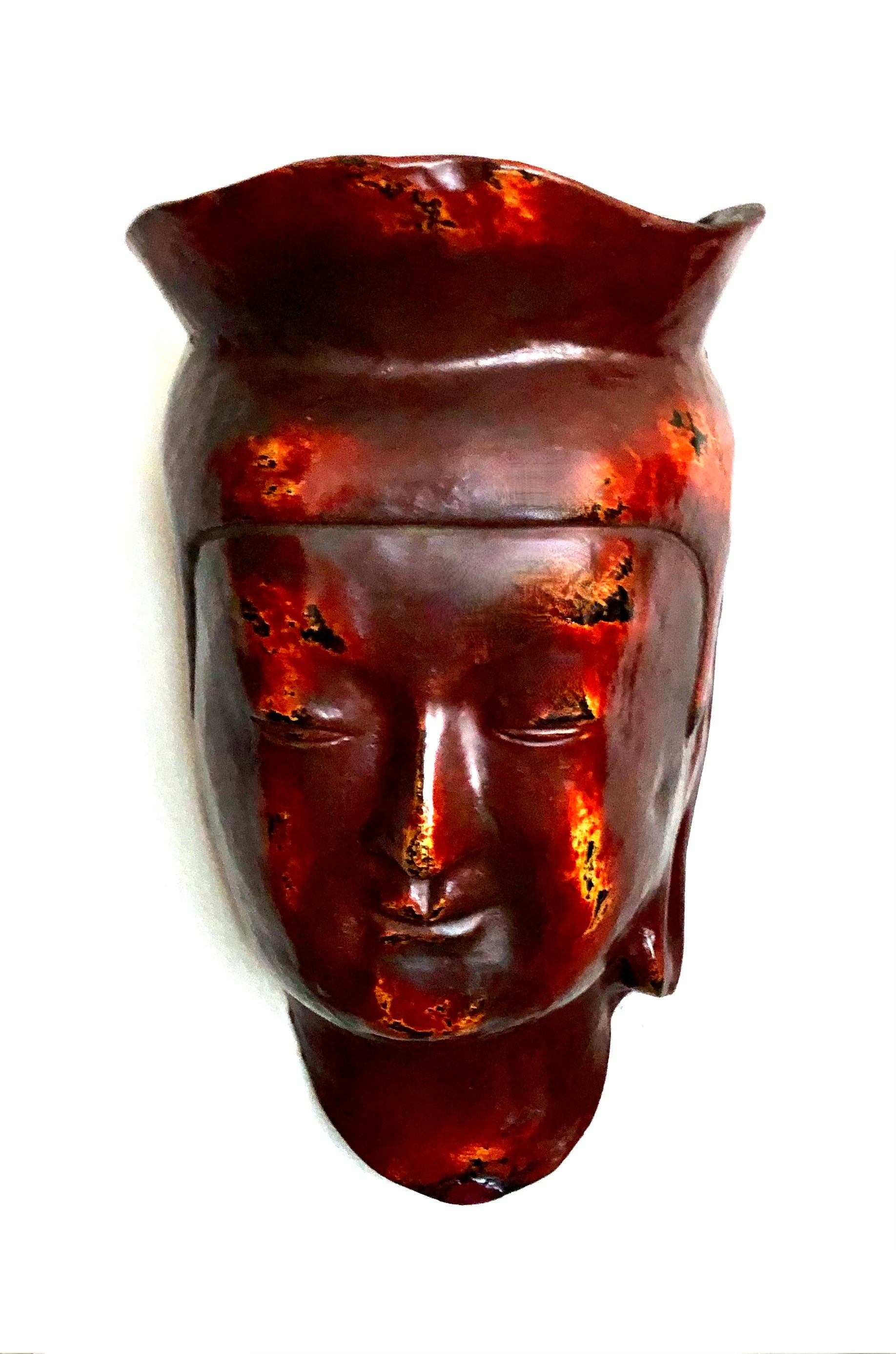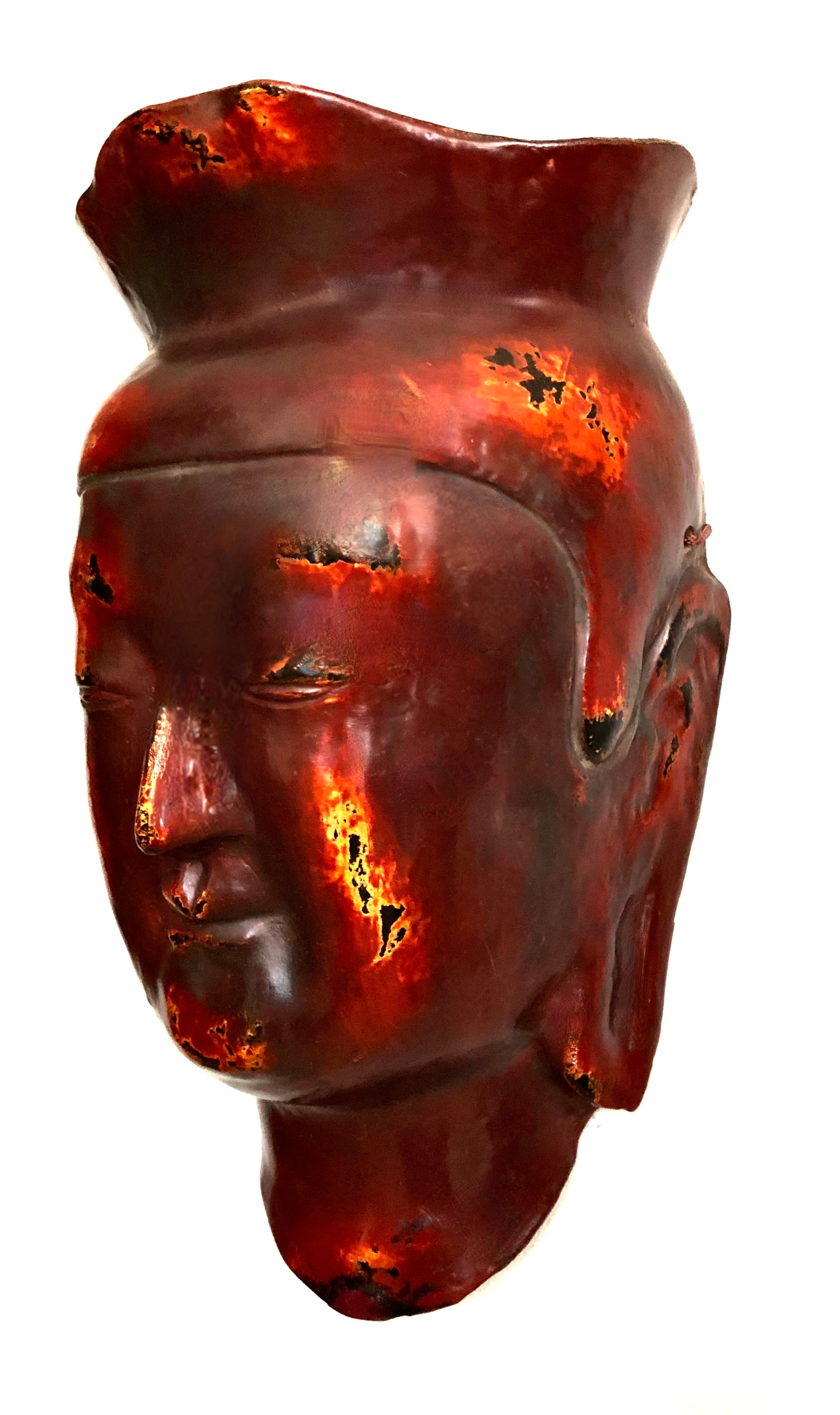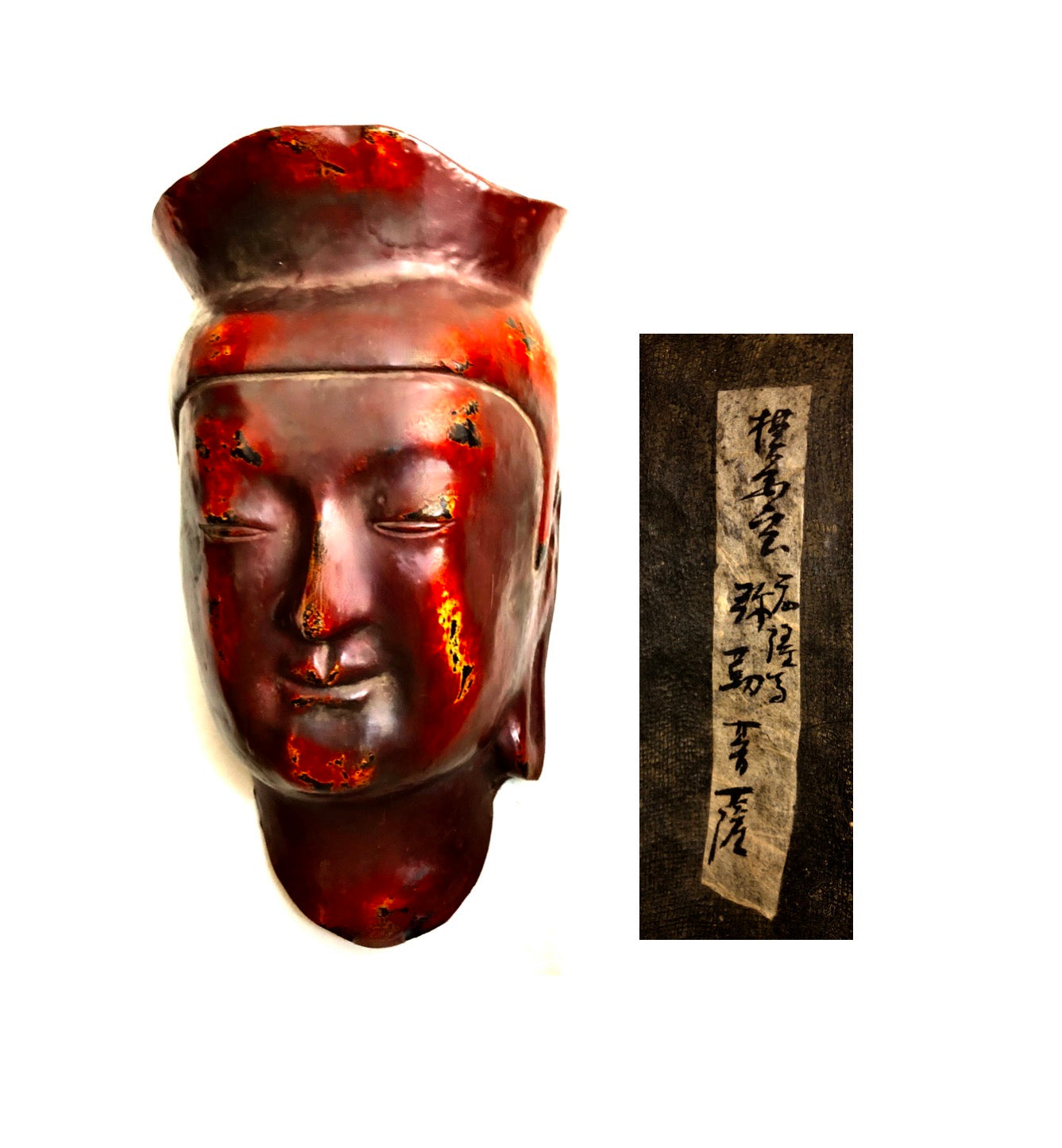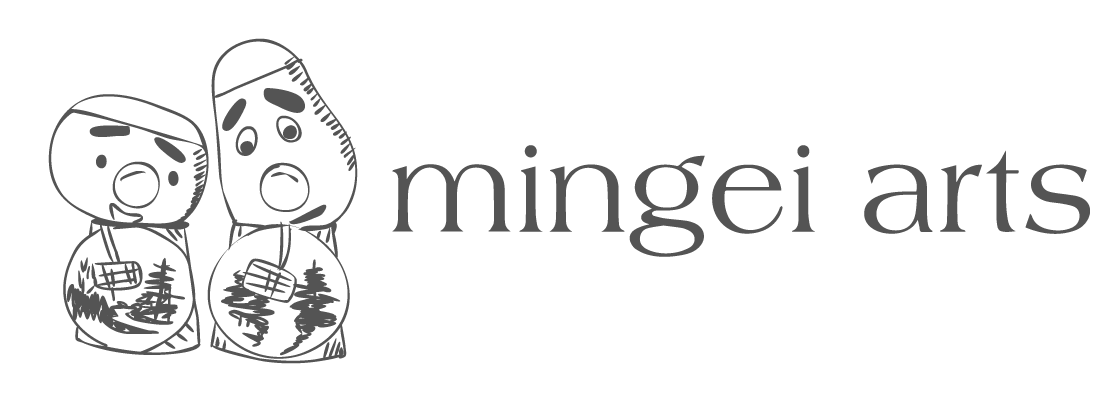


Antique Japanese Lacquered Mask of Minoku Bosatsu | Japanese Buddhism Art
Dimensions: 13-0-“h x 8-0”W x 5-1/2”d
This large “Burasagatte iru” mask played a significant role in Buddhist culture. Art such as this wall mask, (no piercing of the eyes, nostrils, or mouth with two holes above the temples with an attached cord for hanging), substantiates that the piece served as a visual aid for meditation and as a means of conveying a religious art object supportive of Buddhist teachings and practices. This beautiful bronze-colored lacquered mask overflows with symbolism and allusion. The high quality of the work indicates the work of a craftsman, who had extensive training and in-depth religious understanding, knowledge, and background to create an accurate and appropriate representation of masks of this period.
Pictured is Minoku Bosatsu who is revered by followers of the Shingon sect of Buddhism. The figure is looking downward with eyes closed in a contemplative mood, with face and eyes downcast, expressing pleasure, joy, loneliness, or sadness, depending on the viewer’s interpretation. Shown are the characteristic long earlobes for it is said that Buddha was dragged down by wealth, hence he gave up riches, the wearing of fine garments, and earrings, which is why his left earlobe is made to look long and empty where the right is not pronounced. The most striking feature is the painterly execution of the lacquer work, which is extremely expressive, and emphasizes the importance of this religious artwork. The layers of lacquer vary from a rich, high-gloss reddish-chocolate-colored foundation to areas highlighted in yellow and black which add to the three-dimensional qualities of the mask. On the top of his head is a simulated crown representing divinity and the path to enlightenment of mind and spirit. The piece has an original tape affixed on its reverse giving the title of this mask. The piece is without a wooden box and is unsigned. Religious artists were not as interested in being a signifier of their accomplishments, because crafting artworks that meet social needs prolonged the efforts to keep the tradition alive symbolic, and inspirational was paramount.
Condition: Excellent, for the piece is perfect, with no scratches, or missing elements, and remains in perfectly protected condition with minimal signs of aging. It has a beautifully aged high gloss bronze lacquer finish retaining the original craftsmanship. It meets the standards of the collector of Japanese religious arts.
Provenance: This piece was owned by Yoshitatsu Nagano, who was the second highest government official in Hiroshima, and who passed on this piece after the war to his daughter Michiko and her husband Satoru Yoshizato, owners of the Oriental Fine Arts Antique Shop in Carmel, California. Michiko was also the translator for Vermillion Asian Arts, Carmel, our former Antique Gallery, which closed in 2008. The Yoshizatos told us that this piece was originally given to her father by a departing member of the Shogunate, a government representative, who fostered the establishment of Shingon Buddhist Temples throughout Japan. We understand that a piece of this quality and size was the prototype for smaller variations of this figure sold at temples since its introduction.
Additional Information: Minoku, (Maitreya, standing for friendship, benevolence, kindness, friendliness, amity, goodwill, and active love for others), was born with an adorned appearance and endowed with extraordinary intelligence, in keeping with his role as a loving friend of suffering sentient beings. He provides an excellent role model for all individuals who display these works of art, and who wish to develop these qualities in their everyday lives. Miroku, (Maitreya), delays their own Buddha-hood out of compassion for all sentient beings. His practice is that of loving-kindness. While already assured of Buddhahood, Kannon (Minoku) remains in this world to comfort sentient beings. Perhaps because of the maternal, feminine traits and gentle expressions, Kannon (Minoku) statues inspire a greater affection in Japan than any other Buddhist images.
